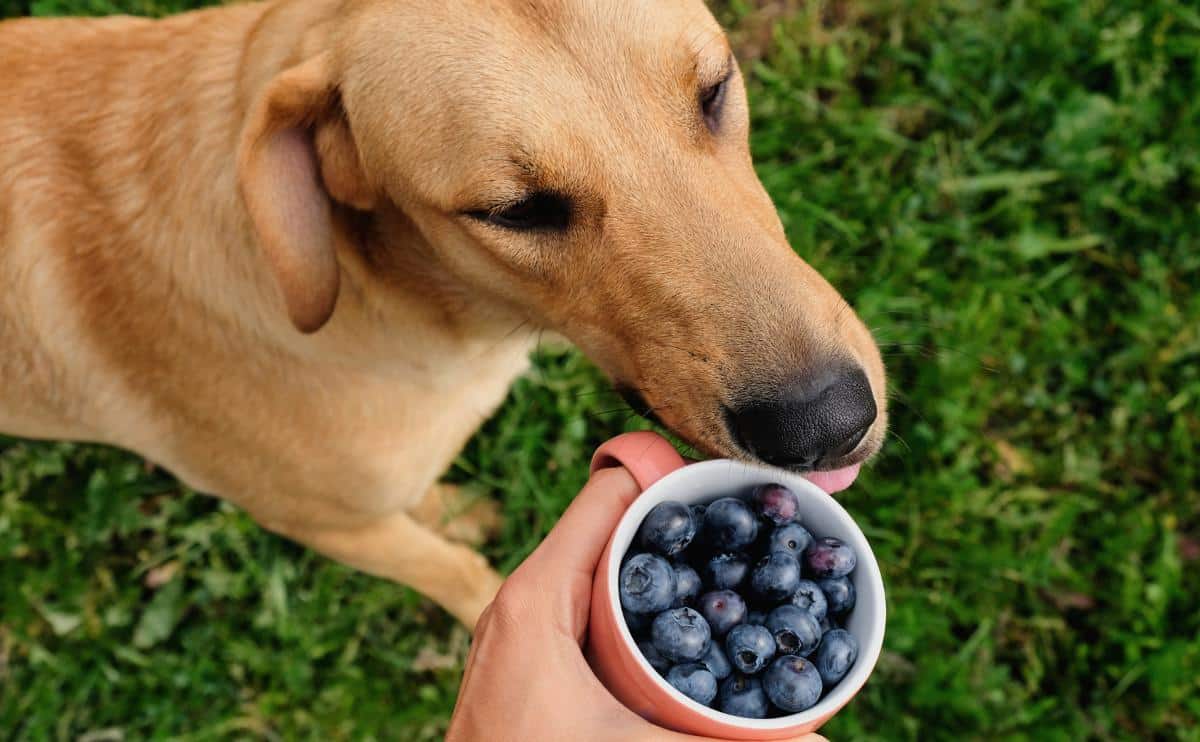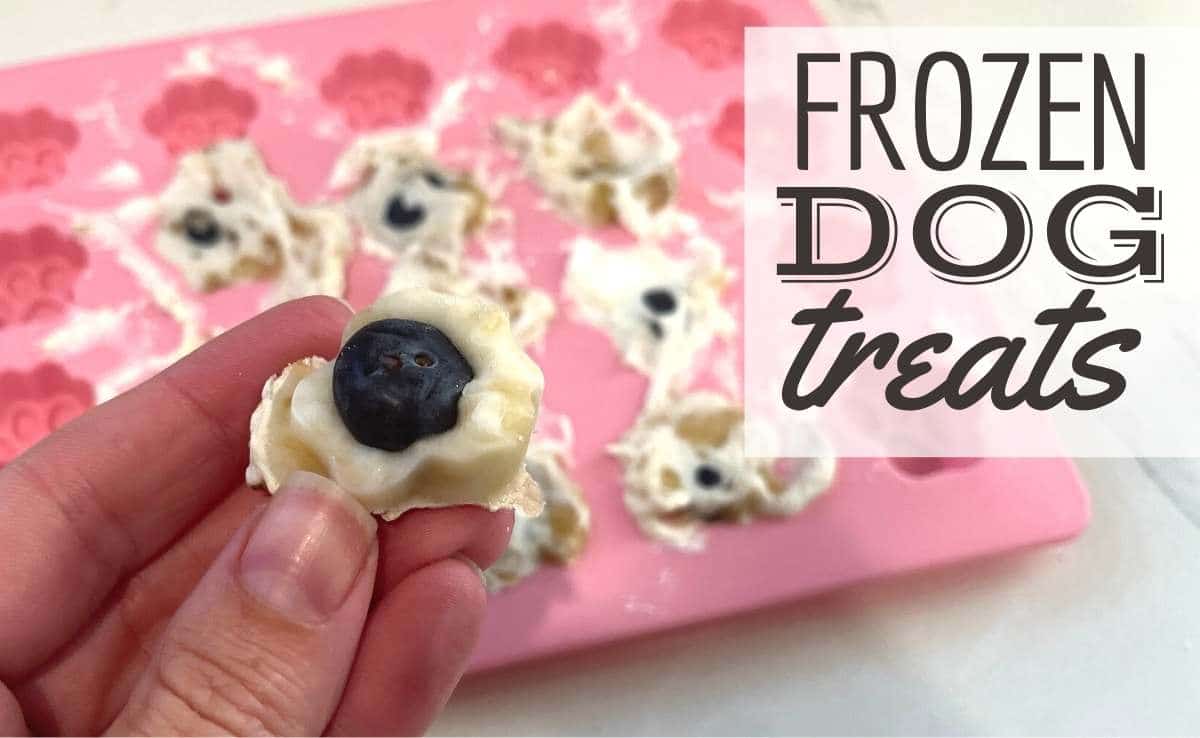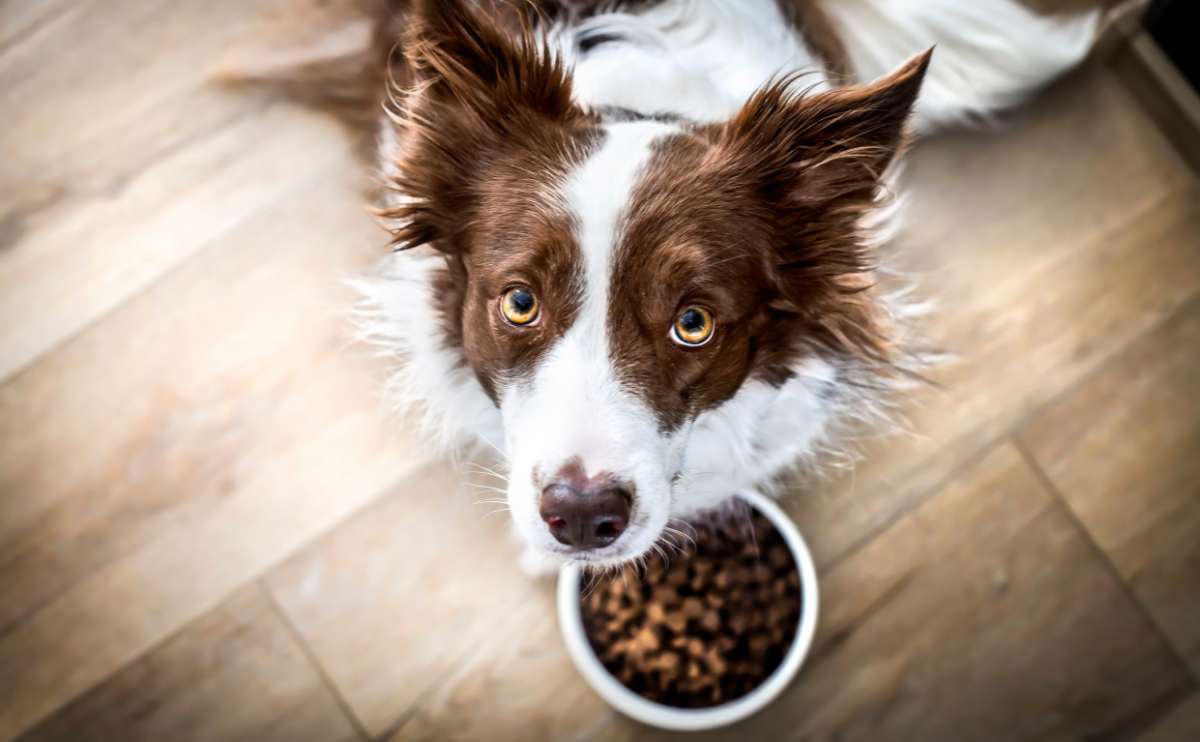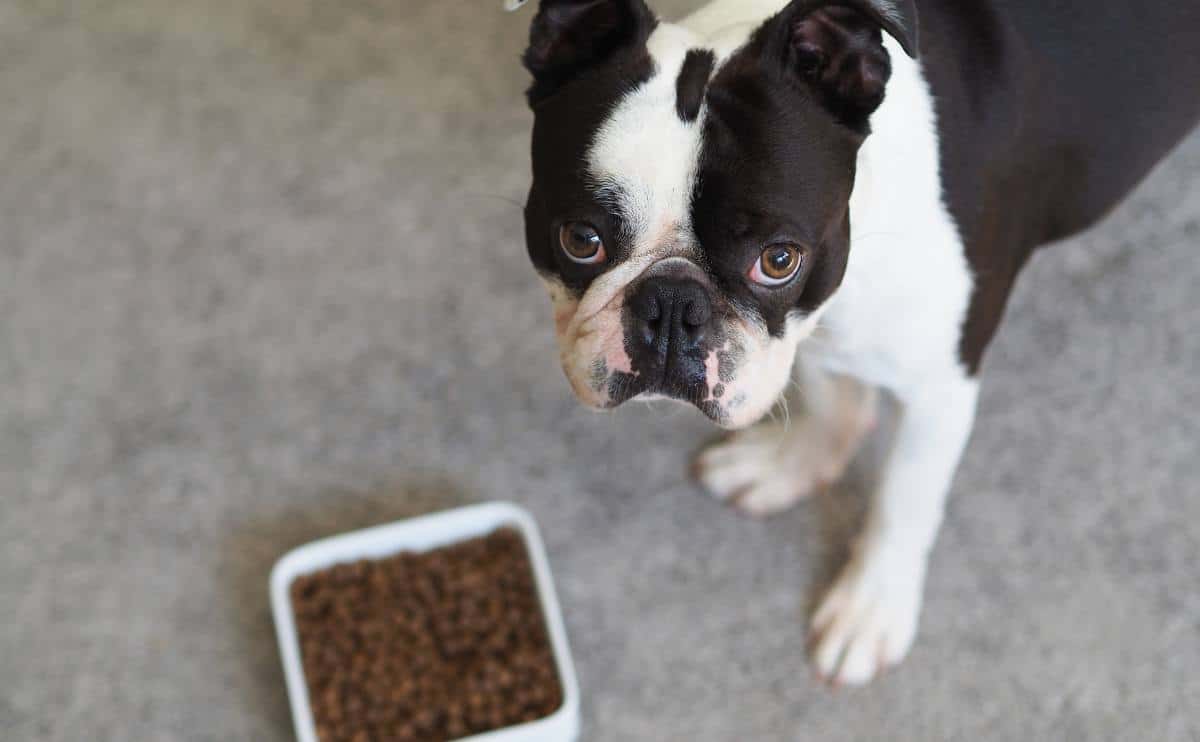When you purchase through links on our site, we may earn a commission. Here’s how it works.

Adding fresh fruits to your dog’s food bowl can provide extra moisture, nutrition, and flavor. Not all fruits are safe for dogs to eat, though, so owners must be careful about what they share with their canine companions. Blueberries are a delicious and highly common fruit found in many households. Blueberry pancakes, muffins, parfaits, and smoothies are favorites of many. Sharing a tasty berry snack with your pup might be tempting, but can dogs eat blueberries?
Can Dogs Eat Blueberries?
In moderation, yes, dogs can eat blueberries. They are not poisonous and have very low calories, so they can be a tasty, healthy treat. Dogs should not have a blueberry treat every day, but they are safe to consume in moderation. They should only ingest at most a few berries at a time. While not harmful, too much plant material can be hard to digest. Like other fruits, berries are high in sugar, which is not something canines need extra of in their diets.
Canines should only ever consume blueberry fruit. The leaves, stems, and plants are tough to chew and even more challenging to digest. They contain no nutritional value but are not toxic. Plant material like this can get stuck in the teeth, cause choking, and potentially lead to bowel obstruction. Take care not to let your pup munch on any berry bushes in the garden.
Are Blueberries Safe For Dogs?
Yes, these are safe berry choices for canines. However, eating too many sugar-laden fruits can be a problem. Stick to about 8 to 10 per serving. Eating too many can lead to stomach upset, pain, and digestive issues. Too much sugar also puts canines at risk for weight gain and diabetes.
The main risks from the berry include a potential choking hazard. In the long term, eating too many of them can lead to weight gain and diabetes. Additionally, pets that overeat people’s food, like fresh fruit, may start to refuse their regular kibble. Eating too much plant material is a problem as most dog chow is developed to provide balanced nutrition. Canines cannot get proper nutritional support from a fruit-heavy diet, and too much fruit causes digestive distress and upset.
The fresh or dried fruit is safe. These are good served whole, mashed, or pureed. Frozen ones are safe as long as they are not too large or too hard. Always look for fresh fruit and inspect for signs of dirt and mold. Wash all fruit before feeding it to your pup. Be careful with any type of frozen fruit, as they can become a choking hazard. Let them thaw out a bit before serving.
Are Blueberries Good For Dogs?
In small doses, blueberries can have some nutritional benefits. They are even included in some commercial pet foods. These contain a good amount of fiber, antioxidants, and vitamins A, C, and K. Along with those, they contain magnesium, calcium, phosphorus, and potassium. They also work as an anti-inflammatory and support brain function. The berry also contains phytochemicals and phytonutrients, which are compounds that have disease-fighting functions.
Blueberries can add nutritional benefits and healing properties to a pup’s diet in appropriate doses. They also offer a bit of new textures and flavors. Canines can taste sweetness and often develop a liking for it. These little fruits happen to be some of the sweetest.
Are Blueberries Toxic For Dogs?
The blueberry is not toxic to canines. However, pups that suffer from diabetes are overweight, have sensitive stomachs, or have food allergies should not consume these sugary fruits. If your pet has a digestive issue or other medical condition, is on a prescription diet, or is taking any kind of medication, avoid feeding them any fruits.
How Many Blueberries Can A Dog Eat?
Treats and supplemental food of any type should not exceed more than 10% of a canine’s diet. 90% should come from high-quality, well-balanced dog food. The number a pup can safely have depends on their size.
- Toy-sized breeds between 2 and 15 pounds should only consume one to two berries per serving.
- Small dogs are those that reach about 22 pounds or less. Stick with one to three berries at a time for these sized pups.
- Medium-sized breeds, those that are about 22 to 55 pounds, can handle a few more, between three and five or six at a time: the smaller the pup, the fewer berries.
- Large breeds, those that reach between 50 and 90 pounds, can have more, between 5 and 8.
- Canines over 100 pounds can have 8 to 10 or a small-sized handful at a time.
Keep this to an occasional treat. Never feed your pet any type of fruit with added sugars, artificial sweeteners, or unsafe fruits like grapes. Avoid fruit salads, etc., unless you have made them yourself.

Our Personal Experience With Dogs Eating Blueberries
“I don’t go out of my way to buy blueberries for my dog, but when they’re fresh and in season, I will pick them up from the grocery store for myself. Oftentimes, I can’t finish them all, so will pop them in the freezer to use as a sweet, crunch treat for my dog. That way, they don’t spoil or go to waste. I only do it in moderation, though, to not upset his tummy. And notice a slight discoloration in his poop. As a result, it will often be a bit purple the next time he goes potty. They’re also good to use with frozen banana and yogurt mashed together in silicone molds or ice cube trays (pictured above).”
– Sadie Cornelius, dog parent to Cavalier King Charles Spaniel
Can My Pup Eat Blueberry Jam?
No, do not feed your pooch any kind of blueberry jam. Jam, jelly, and fruity fillings contain other ingredients like extra sugar, citrus, and artificial sweeteners. Xylitol, a common sweetener, is toxic to canines. The same plant-derived substance as xylitol is also called “birch sugar” or “birch sap” in ingredient listings, so steer clear of these ingredients. If you want to mush up or blend frozen ones to make a slurry, that is safe, but most berry jams and jellies are unsafe for your pet.
Can My Dog Eat Blueberry Muffins?
No, blueberry muffins, unless explicitly made for your canine family members, should be avoided. Muffins made for people contain sugar, sweeteners, and other ingredients like artificial sweeteners that are not safe for canines. If you want to make pup-safe muffins or homemade doggie treats with a sweet berry, that can be a tasty treat, as long as there are no unsafe ingredients.
Are Wild Blueberries Safe?
It is best to stay away from any wild berry species. This precaution is partly because not all berries that grow in the wild that look like this berry are actual blueberries. Many wild berries can be toxic, so it is best only to stick to those you know are not harmful. Only serve those purchased at the store, farmers market, or grown in your own garden.
What Happens If My Dog Eats Too Many?
A pup that has overconsumed a berry treat may not feel well. They can develop stomach pain and digestive upset. This can lead to a loss of appetite, discomfort, and low energy. Some pups can develop vomiting or diarrhea if they ingest too many due to the high fiber content. If this occurs, reach out to your vet to ask for advice on the next steps. Adding rice or pumpkin to your pet’s food can help, but it is best to speak with your vet first.
Pet insurance can help cover the cost of any unexpected vet visits, including visits related to gastrointestinal issues. Our pet insurance reviews compare top providers and help readers choose a company that fits their needs.
Wondering What To Put In Your Dogs Bowl?
Along with the blueberry, there are several other safe fruits, including strawberries, bananas, and watermelon, that pups can eat with little risk. Never feed your dog grapes, though. They are highly toxic to some pups. There are plenty of options for healthy, well-balanced dog food to pick from. Owners can look into fresh food delivery, healthy dry food, freeze-dried, homemade, or canned food diets. If you are considering a significant switch, like a raw food diet or adding supplements and vitamins, it is wise to speak to your veterinarian before making any major dietary changes. Always feed your pup fruit and other human foods with caution and restraint.
Tagged With: Food Safety

